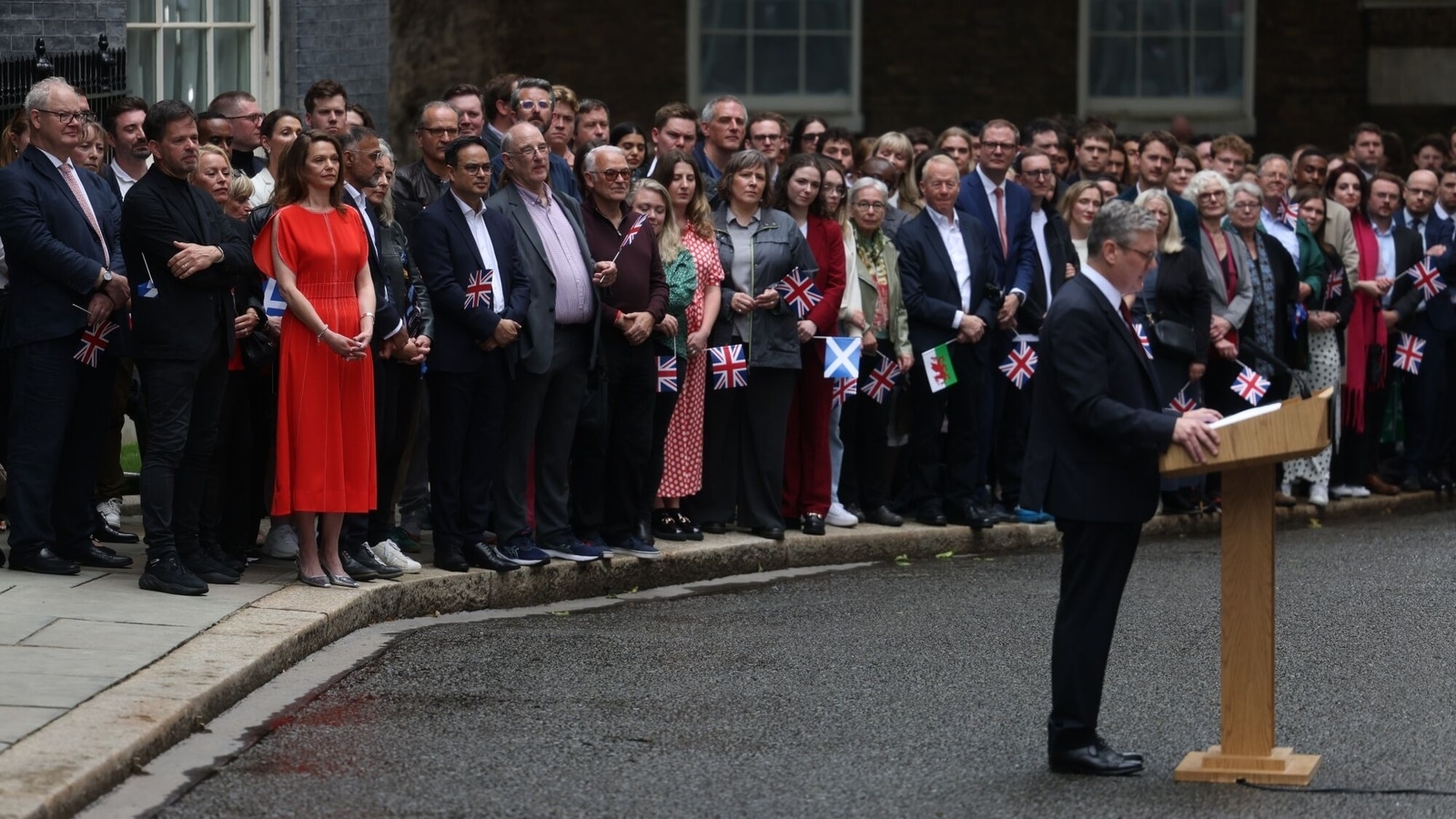Keir Starmer’s cabinet list: Who’s who in new UK government?

- by Admin
- July 5, 2024

Labour leader Keir Starmer officially became the prime minister of Britain on Friday, following his party’s landslide victory in the general elections after being in opposition for over a decade.
Starmer assumed the role of the nation’s leader after a private ceremony at Buckingham Palace with King Charles III. He then announced his new team. Take a look:
Keir Starmer cabinet | List
Angela Rayner: Secretary of State for Levelling Up, Housing and Communities; Deputy prime minister
Rachel Reeves: Chancellor of the Exchequer
ALSO READ- Who is Rachel Reeves, UK’s first female Chancellor of Exchequer?
Pat McFadden: Chancellor of the Duchy of Lancaster
David Lammy: Secretary of State for Foreign, Commonwealth and Development Affairs
ALSO READ- What will be the future of India-UK FTA under Keir Starmer as British PM?
Yvette Cooper: Secretary of State for the Home Department
John Healey: Secretary of State for Defence
Shabana Mahmood: Lord Chancellor and Secretary of State for Justice
Wes Streeting: Secretary of State for Health and Social Care
Bridget Phillipson: Secretary of State for Education
ALSO READ- British election: Kerala-born mental health nurse among Labour Party winners
Ed Miliband: Secretary of State for Energy Security and Net Zero
Liz Kendall: Secretary of State for Work and Pensions
Jonathan Reynolds: Secretary of State for Business and Trade; President of the Board of Trade
Peter Kyle: Secretary of State for Science, Innovation and Technology
Louise Haigh: Secretary of State for Transport
ALSO READ- UK polls: PM Modi congratulates Keir Starmer on Labour’s ‘remarkable’ win
Steve Reed: Secretary of State for Environment, Food and Rural Affairs
Lisa Nandy: Secretary of State for Culture, Media and Sport
Hilary Benn: Secretary of State for Northern Ireland
Ian Murray: Secretary of State for Scotland
Jo Stevens: Secretary of State for Wales
Lucy Powell: Lord President of the Council, and Leader of the House of Commons
UK elections 2024 results
The Labour Party won 403 seats, while Sunak’s conservative Party won just 109 in the 650-member House of Commons.
The Latest News
-
December 22, 2024Donald Trump picks Apprentice producer to be the US special envoy to UK
-
December 22, 2024Daily horoscope: December 22, 2024 astrological predictions for your star sign
-
December 21, 2024UK flights and ferries cancelled owing to high winds as Christmas getaway begins
-
December 21, 2024Prince Andrew plans to move to UAE amid espionage allegations: Report
-
December 21, 2024Inside Britain’s saddest shopping centre: Town centre mall empty just DAYS before Christmas as depressed locals say ‘it’s a disgrace’





